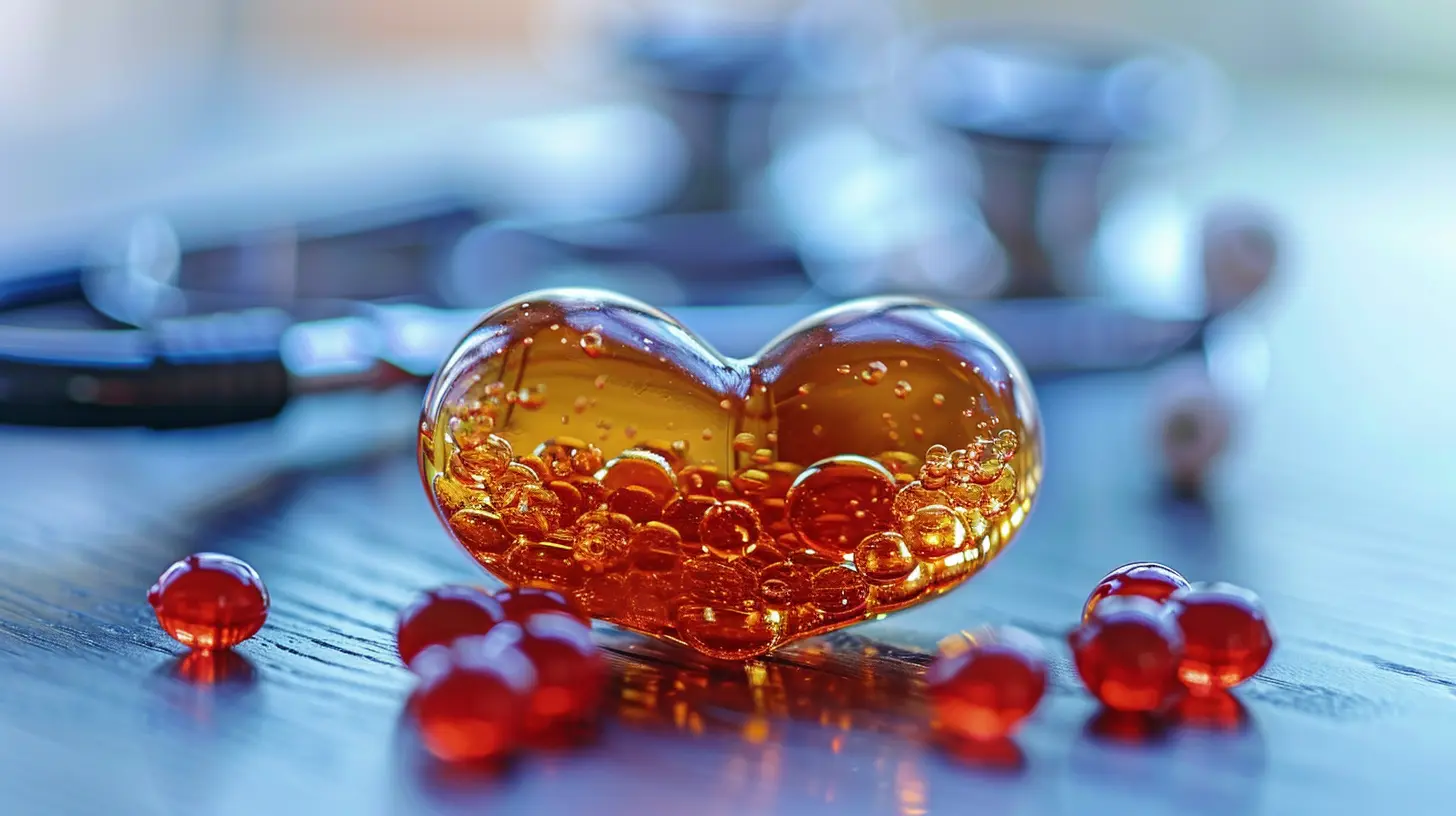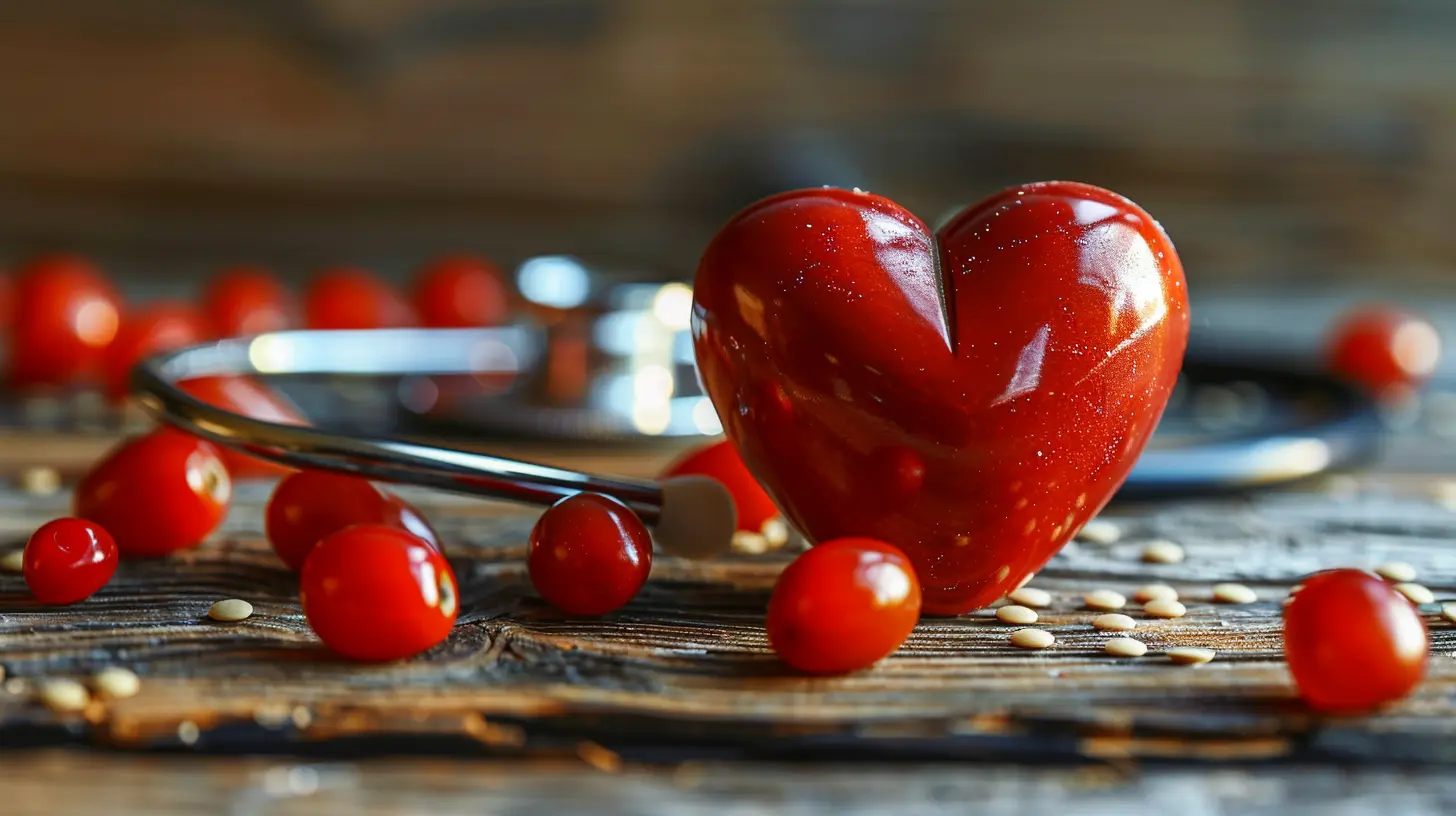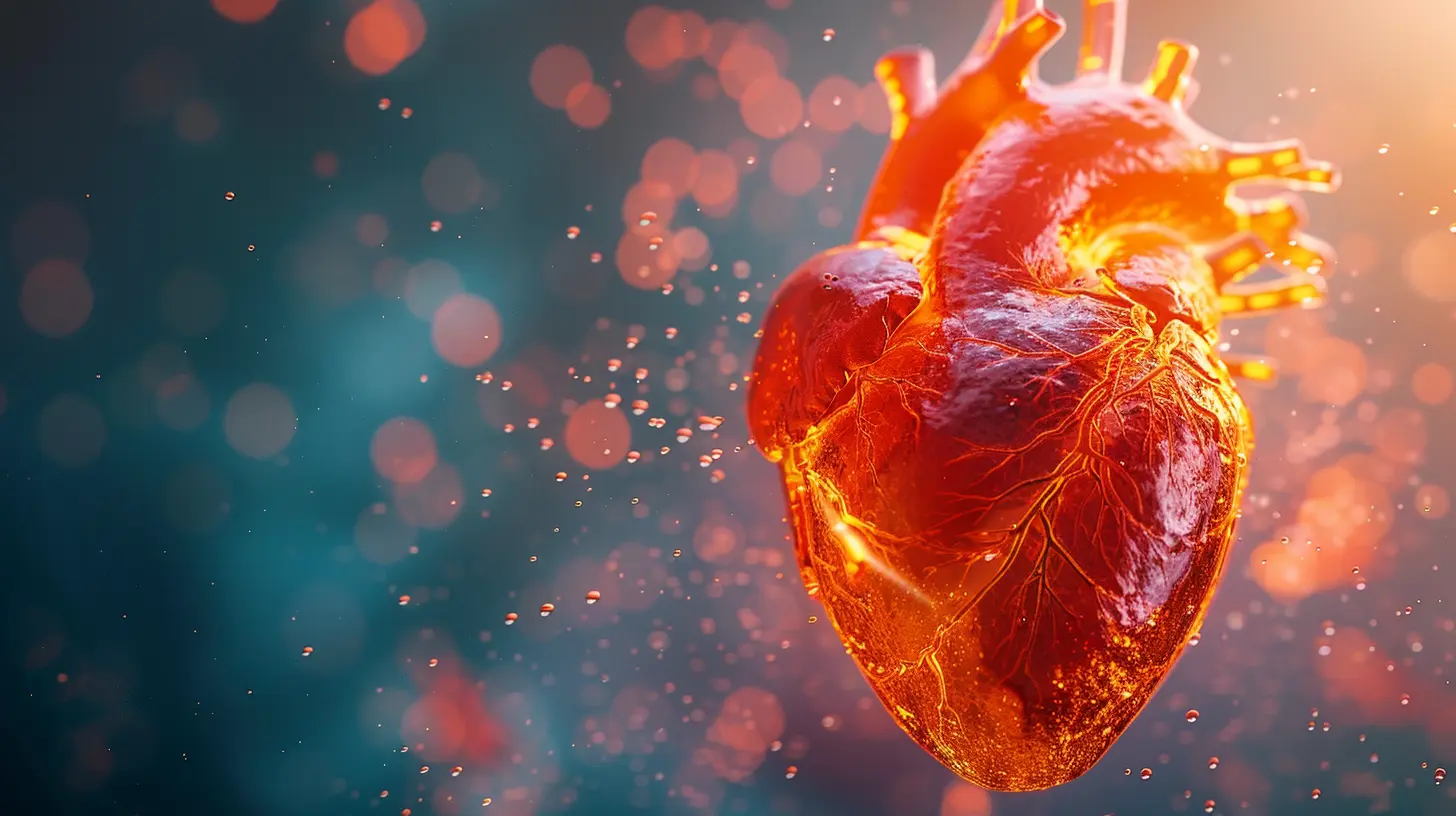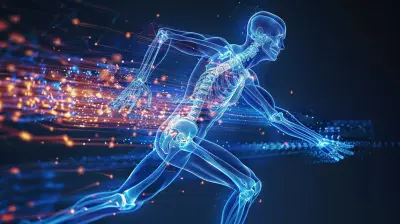HDL vs LDL: The Good, the Bad, and the Impact on Your Heart
4 June 2025
Let’s be real—cholesterol is one of those things we hear about all the time, but most of us aren't exactly sure what it is or why it matters. Every time you visit your doctor, they might mention your cholesterol levels, and suddenly you’re knee-deep in terms like HDL, LDL, triglycerides... the list goes on. Confusing, right?
So, let’s break it down together in a no-fluff, plain-English kind of way. Today, we’re diving deep into HDL and LDL—what they are, why one is your heart’s BFF, and why the other one can be more like that toxic friend you need to part ways with.
What Is Cholesterol, Anyway?
First things first—cholesterol isn't all bad.Yes, you heard that right.
Cholesterol is actually a waxy, fat-like substance that your body needs to build cells, produce hormones, and make vitamin D. Your liver makes all the cholesterol you need, but you also get some from animal-based foods like meat, dairy, and eggs.
Now, here’s where things get tricky: cholesterol doesn’t just float around on its own in your blood. It needs to hitch a ride, and that’s where lipoproteins come into play.
Meet the Lipoproteins: HDL and LDL
There are two main types of lipoproteins that carry cholesterol throughout your body:- HDL (High-Density Lipoprotein) – Often called “good” cholesterol.
- LDL (Low-Density Lipoprotein) – Often labeled the “bad” cholesterol.
Let’s get to know each one a little better.
HDL: The "Good" Cholesterol
Think of HDL as your cardiovascular cleanup crew. Its main job is to pick up excess cholesterol in your blood and carry it back to your liver. From there, the liver either uses it or flushes it out of your body. That’s why high levels of HDL are associated with a lower risk of heart disease.Why HDL Rocks
- It helps remove cholesterol from your arteries.- High HDL levels can reduce inflammation in blood vessels.
- It may protect against heart attack and stroke.
What’s a Good HDL Level?
Here’s a quick reference:- Men: 40 mg/dL or higher (the higher, the better)
- Women: 50 mg/dL or higher
So, if you’re thinking, “Okay, I want more of this HDL stuff,” you’re on the right track. But hang tight—we’ll talk about how to boost it naturally in just a bit.
LDL: The "Bad" Cholesterol
Now, LDL is kind of like that person who shows up to your party uninvited and causes all the drama. Its job is to carry cholesterol to your cells, which sounds helpful, but too much of it hanging out in your bloodstream can spell trouble.Why LDL Gets a Bad Rap
- It dumps cholesterol into your arteries.- That buildup can lead to plaque, which narrows your arteries.
- Narrowed arteries = reduced blood flow = higher risk of heart attacks and strokes.
What’s an Unhealthy LDL Level?
Here’s what to aim for:- Optimal: Less than 100 mg/dL
- Near optimal: 100–129 mg/dL
- Borderline high: 130–159 mg/dL
- High: 160–189 mg/dL
- Very high: 190 mg/dL and above
If that’s a lot of numbers, no worries. Just remember: lower LDL is generally better.
HDL vs LDL: What’s the Real Difference?
Let’s use a simple analogy. Imagine your bloodstream is a highway.- LDL is like a dump truck that’s constantly dropping debris all over the road.
- HDL is the street sweeper, clearing things up to keep traffic flowing smoothly.
Too many dump trucks and not enough sweepers? That’s a recipe for congestion, or in real terms—plaque buildup, clogged arteries, and heart disease.
Why Should You Care About Cholesterol?
Still not convinced cholesterol should be on your radar? Let’s look at the cold, hard facts:- Heart disease is the leading cause of death worldwide.
- High cholesterol is one of the major risk factors.
- Most people don’t even know they have high LDL until it’s too late.
The bottom line? Knowing your HDL and LDL numbers can literally be a lifesaver.
How to Increase Your HDL (The Good Kind)
You can’t supplement your way to good cholesterol alone. Lifestyle is king here. Let’s chat about some natural ways to give your HDL a boost.1. Get Moving—Regularly
Yep, exercise. Even a brisk 30-minute walk five days a week can help raise your HDL levels. Bonus: it also helps lower LDL.2. Eat Healthy Fats
Think olive oil, avocado, nuts, and fatty fish like salmon. These are rich in omega-3s that promote heart health.3. Quit Smoking
If you needed one more reason to quit, here it is. Studies show that quitting smoking can improve your HDL levels fairly quickly.4. Drink Alcohol Moderately
A glass of red wine in moderation may raise HDL—but we’re talking one glass, not five.5. Lose Extra Pounds
If you’re carrying extra belly fat, shedding even 5-10% of your weight can make a big difference in your HDL levels.How to Lower Your LDL (The Trouble-Maker)
If your LDL is running wild, don’t panic. There’s a lot you can do to tame it.1. Cut Back on Saturated and Trans Fats
Think fried foods, butter, cheese, and red meat. Swap them for healthier options like lean poultry and plant-based oils.2. Add More Fiber
Soluble fiber, found in oats, beans, fruits, and vegetables, helps block cholesterol absorption in your digestive tract.3. Move That Body
Yes, exercise again. It’s good for both HDL and LDL. Two birds, one stone.4. Consider Plant Sterols and Stanols
These naturally occurring substances can block cholesterol absorption. They’re often added to fortified foods like margarine and orange juice.5. Take Prescribed Medications (If Needed)
Sometimes lifestyle changes aren’t enough, and that’s okay. Statins and other medications can help bring your LDL down if your doctor recommends them.What About Triglycerides?
Ah, good question. Think of triglycerides as the third wheel in this cholesterol story. They’re another type of fat in your blood, and high levels—especially when paired with low HDL or high LDL—can increase your risk of heart disease.Things that spike triglycerides:
- Sugary foods and drinks
- Too much alcohol
- Excess calories (from anything, really)
- Sedentary lifestyle
Keep an eye on them too!
When Should You Get Your Cholesterol Checked?
The American Heart Association recommends:- Adults age 20 and older: Get screened every 4 to 6 years.
- High-risk individuals (e.g., family history, obesity, diabetes): More frequent testing.
Testing involves a simple blood draw, usually after a 9-12 hour fast. Knowing your numbers is the first step toward taking control of your heart health.
A Heart-Healthy Lifestyle Is Simpler Than You Think
You don’t need to overhaul your entire life overnight. Small, consistent changes go a long way. Start with walking more, eating cleaner, and being mindful of your fat intake.Your heart’s been working non-stop since the day you were born. It deserves a little TLC, don’t you think?
Final Thoughts
At the end of the day, cholesterol isn’t the enemy—it’s about balance. HDL and LDL both play roles in your body, but like so much in life, it’s all about keeping the scales tipped in the healthy direction.- Want stronger arteries? Focus on raising your HDL.
- Want to avoid heart attacks? Keep that LDL in check.
And when in doubt? Talk to your doctor. It’s your heart—you’ve only got one. Treat it like it matters, because it absolutely does.
FAQs About HDL and LDL
Q: Can I have too much HDL?
A: It's rare, but extremely high HDL levels might not be beneficial and could even be harmful in some cases. Balance is key.Q: Can kids have high cholesterol?
A: Sadly, yes. With rising obesity rates, even children can have elevated LDL levels. Early screening matters for high-risk kids.Q: Are all fats bad for cholesterol?
A: Nope! Unsaturated fats (like those from olive oil, nuts, and fish) are your friends. It’s the trans and saturated fats you want to watch.all images in this post were generated using AI tools
Category:
CholesterolAuthor:

Sophia Wyatt
Discussion
rate this article
2 comments
Ryder McCarty
In the intricate dance of cholesterol, the truth may be hidden in the shadows. As HDL champions heart health and LDL lurks as a silent threat, understanding their roles could unlock the secrets to a longer, healthier life. What’s your heart really telling you?
June 7, 2025 at 2:37 AM

Sophia Wyatt
Thank you for your insightful comment! Understanding HDL and LDL is indeed crucial for heart health, and their roles can guide us towards better lifestyle choices. Let's keep the conversation going!
Elin McFadden
Understanding HDL and LDL is crucial for heart health! Embrace knowledge and make informed choices for a healthier lifestyle—every small step can lead to a big impact. Your heart will thank you!
June 4, 2025 at 4:06 PM

Sophia Wyatt
Thank you for your insightful comment! Understanding HDL and LDL is indeed vital for maintaining heart health and making informed lifestyle choices. Every small step counts!


